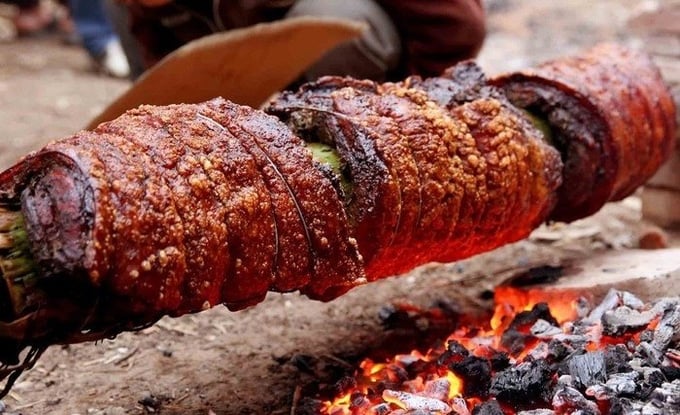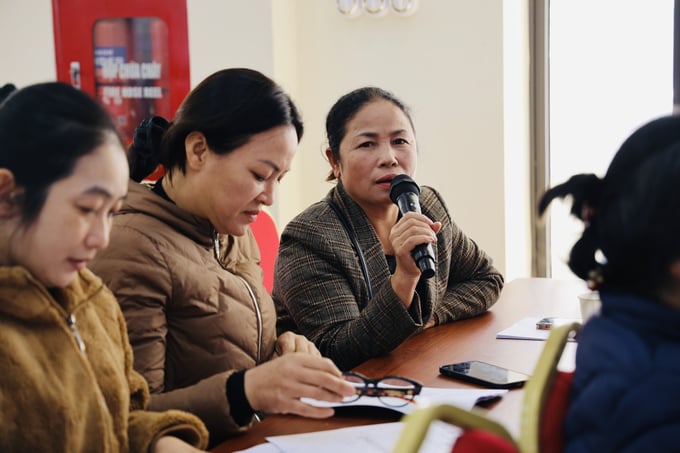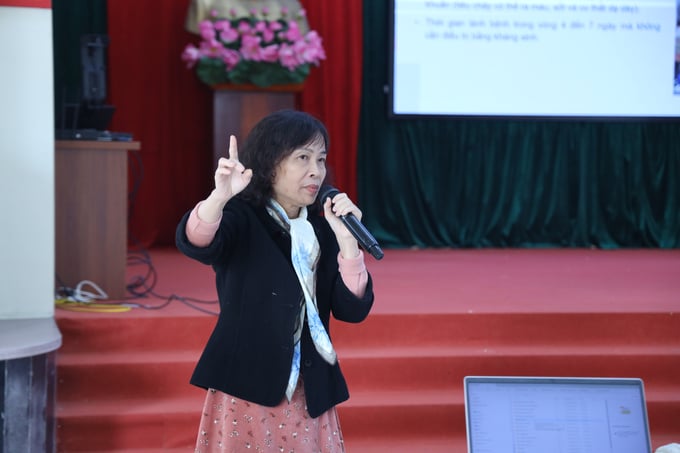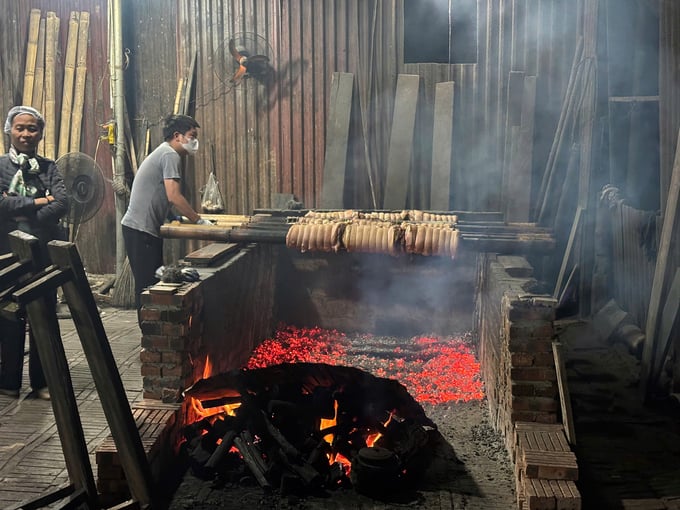December 21, 2025 | 16:35 GMT +7
December 21, 2025 | 16:35 GMT +7
Hotline: 0913.378.918
December 21, 2025 | 16:35 GMT +7
Hotline: 0913.378.918

Dong Lam Roasted Pork is a traditional dish linked to Vietnam's history. Photo: SAFEGRO.
In the quiet village of Duong Lam, near Hanoi, tradition lives on in every roasted pork roll. Villagers share a story passed down through generations - when King Ngo Quyen triumphed at the Battle of Bach Dang River in 938, he and his soldiers celebrated with roasted pork, cooked on a simple bamboo pole. That same dish, rich in history and flavor, has remained a proud specialty of Duong Lam ever since.
For centuries, the villagers have perfected the art of roasting pork, infusing it with the fragrant essence of guava leaves, honey and basil. The result is a delicacy with crispy golden skin, tender meat, and an aroma that lingers in the air, drawing visitors from afar. But more than just a meal, it is a taste of history - a symbol of a heritage passed down through generations.
Each day, the local roasting facility produces nearly half a ton of roasted pork, serving around 1.000 diners. If food safety measures are consistently followed, 30.000 customers per month can savor a dish crafted with care and tradition. However, behind the inviting flavors lies a hidden risk. The SAFEGRO project team, dedicated to ensuring sustainable and safe food for all, understands that even the most cherished culinary traditions must meet modern safety standards.

The food production households in Dong Lam participate in a food safety training course. Photo: SAFEGRO.
While most of the village sleeps, in the early morning hours Dr. To Lien Thu and the SAFEGRO team are already at work. They stand alongside Mrs. Huong and her husband, Mr. Luong, the dedicated couple who prepare the roasted pork rolls. Observing, guiding and supporting them, the team helps implement safer food handling practices to protect both tradition and the health of their customers.
Dr. To Lien Thu, who has dedicated almost 30 years to promoting food safety, advised the producers: “You must reorganize the warehouse, repair the meat processing area by re-paving the floor and create a slope for proper drainage. A dedicated cabinet for tools and spices is needed to prevent cross-contamination. Workers should use clean towels and improve hygiene practices. More stainless steel sinks must be installed, and wooden meat cutting boards should be replaced along with stainless steel tables for better sanitation".

Dr. To Lien Thu, a food safety expert at SAFEGRO, has nearly 30 years of experience in the food safety field in Vietnam. Photo: SAFEGRO.
Previously, pork was prepared on wooden boards placed on a cement floor worn with cracks and peeling. These imperfections harbored bacteria, increasing the risk of cross-contamination. “Many bacteria such as E. coli, Salmonella, Listeria and Staphylococcus aureus can cause foodborne disease, leading to dizziness, vertigo, diarrhea and vomiting, and even hospitalization”, Dr. Thu explained.
Without proper changes, the reputation of a beloved tradition could be threatened by invisible dangers.
After working with SAFEGRO, the couple not only committed to improving food safety but also began upgrading their equipment and facilities. The floor has now been renovated, paved with shiny tiles and sloped for proper drainage, ensuring a cleaner and safer environment for food preparation.
From this secure space, roasted pork is distributed to weddings attended by hundreds and to famous restaurants in Duong Lam, where foreign guests often visit to experience local specialties. The improvements made are not just about compliance; they are about preserving a legacy.

Ensuring safe food production activities helps protect the historical values of Dong Lam roasted pork. Photo: SAFEGRO.
By ensuring safe food production practices, SAFEGRO helps protect the tradition of Duong Lam’s roasted pork. Generations to come will continue to earn their livelihoods from this craft, and tourists from all over the world can enjoy its rich flavors without worry. When tradition and food safety go hand in hand, the taste of history can endure forever.
Dr. Thu and the SAFEGRO team, working through the night together, appreciate that their efforts were making a real difference in the spirit of International Development Week (February 2–8, 2025) by “Building a better world together".
SAFEGRO, funded by Global Affairs Canada and implemented by Alinea International in partnership with the University of Guelph, embodies this commitment. By improving food safety in Vietnam, they are not only protecting local communities but also contributing to a healthier world for all.
Translated by Phuong Dung
/2025/12/17/0042-2-075234_14.jpg)
(VAN) In Vinh Long, high-quality, low-emission rice models are being scaled up from cooperatives, helping reduce production costs, increase farmers' incomes, and protect the environment.

Professor Nguyen Duc Ngu, the third generation of leaders since the establishment of Vietnam’s Hydrometeorology sector has witnessed and lived through the long arc of its development.

(VAN) Climate change, saline intrusion, and unsustainable farming practices are depleting agricultural land in the Mekong Delta. Restoring soil health is a key solution for the future of agriculture.

(VAN) Agroforestry coffee not only enhances coffee quality but also helps farmers in Quang Tri enter carbon credit market with high expectations.

(VAN) Towards Net Zero 2050, fertilizer manufacturers are proactively developing bio-based products, reducing emissions, and demonstrating responsibility to the environment.

(VAN) The smart rice cultivation model, which reduces methane emissions and aims at developing agricultural carbon credits, has been deployed in Thai Nguyen province and delivered positive results.

(VAN) The purpose of this visit is to unify the proposal for a technical assistance project supporting sustainable agricultural and forestry development in Angola.